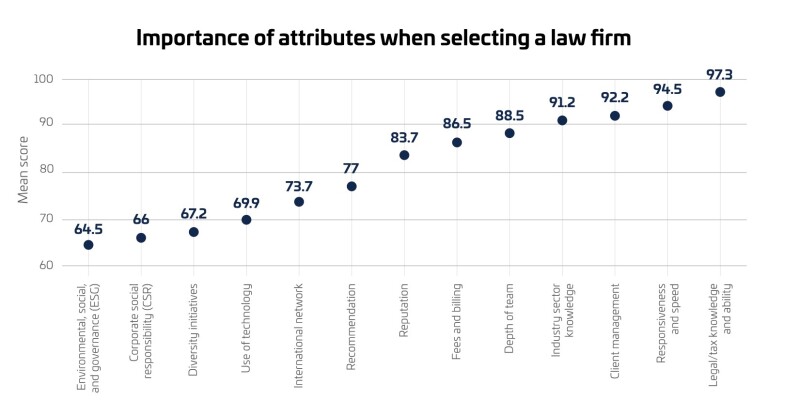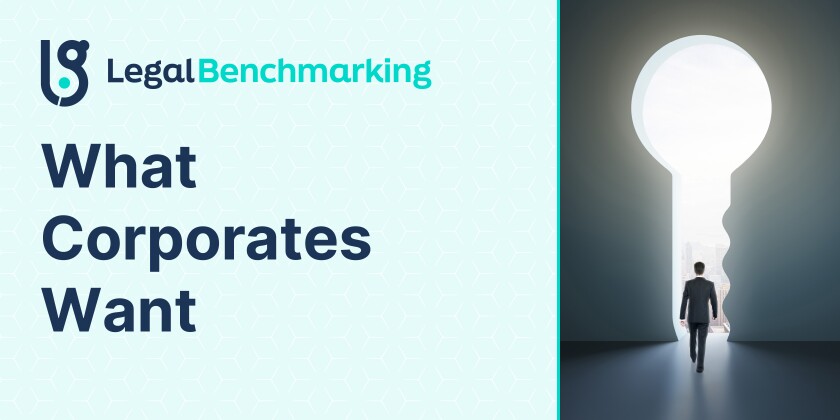Legal Benchmarking Group's core titles Managing IP+, IFLR+ and ITR+ have each published 13 data-based reports to help law firms gain exclusive insights into what affects in-house lawyers’ decisions to hire external counsel.
The reports aggregated the responses from surveys conducted in 2022 and 2023 covering over 25,000 in-house counsel across relevant practice areas.
During the research, in-house counsel were asked to rate a range of attributes – each of which formed the basis of an individual report – based on how these factor into their hiring decisions.
The 13 attributes included industry knowledge, technology use, reputation and ESG.
You can view the reports below:
In-house counsels’ views on these attributes differ between industries, regions, revenue sizes, and practice areas.
But one consistent finding across all surveyed brands was that legal/tax knowledge and ability was the most important attribute when hiring a new counsel, with a mean score of 97.3%.

As the Asia-based in-house counsel at a global bank told IFLR, for example: “Legal knowledge and ability are the cornerstones of everything we do. It bothers me if I get legal advice and see that the arguments are half-baked.”
Responsiveness and speed, client management and industry knowledge are some of the other attributes high up on the priority lists of in-house counsel, each producing over 90% in mean scores.
In an interview with ITR, one in-house tax leader for a global consumer company described an adviser's responsiveness as "critical".
They added: “If I reach out to a consultant, I would be very happy with an almost-instant reply saying something along the lines of: ‘Got it. Give me three days and I’ll get back to you’.
“I don’t normally require speed, and if I do, I call or text the adviser first to give them a heads-up. Transparency is key to manage expectations on both sides.”
Some of the factors that in-house counsel admittedly didn’t pay much attention to were ESG and CSR, with both receiving moderate mean scores of 64.5% and 66%, respectively.
Most in-house counsel didn’t actively assess the ESG efforts of their external advisers, with one telling Managing IP: “We do not have any formal considerations for ESG, but we would not hire counsel that we felt violated such efforts.”
The data is clear: in-house counsel place more importance on factors that could have a direct bearing on their cases than those regarded more as social drivers.
Even so, ESG and CSR initiatives remain important because when all firms fare equally on key hiring criteria such as legal knowledge and client management, ESG and CSR initiatives may help some firms edge out the competition.

